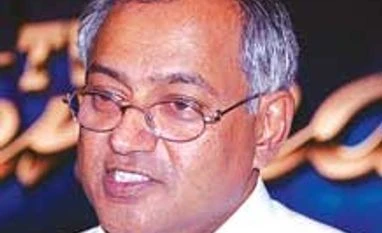The company which has been largely criticised for not launching two-wheelers frequently, said that the long duration for a launch "is by design, not by accident." The company has said it would invest around Rs 250 crore during the current fiscal.
"We are in the fourth position today and we target to be in the top three players in India, with the stream of product launches every quarter or four months for the next three years, which will significantly strengthen our position," said Venu Srinivasan, chairman and managing director, TVS Motor.
As the demand for the product, which are launched already are so high, company had to delay the subsequent product launches in the same segment.
K N Radhakrishnan. President & CEO of the company added "success for the product means, you can have little bit of space for the next product then you will get full effectiveness of the product into the portfolio of the company".
For instance, TVS planned to launch Scooty Zest in June, now postponed to August and Star City demand pushed new Victor launch to December, from September.
These launches would help the company to meet its target of capturing 14% market share by end of this fiscal.
While addressing the company's Annual General Meeting today Srinivasan said, "this is one of the weakness that people used to point out on the company that we do not have regular product launch programme. But it was by design, not by accident."
More From This Section
"It is because we feel that unless we master the field of consumer led engineering, having deep understanding of consumer psychology, consumer aspiration and convert that to hard engineering and style, we don't want to launch the product. Just launching new models, more and more, will not necessarily improve market share, in fact it will have bad impact on the bottom line," he added.
He noted, two new launches were made last year, after spending around 3-4 years on quality improvement. The significant growth of the company came due to the launch of the Jupiter, which gave stellar growth leading to 23% in second half compared to previous year. The company has sold 19.9 lakh two-wheelers last year.
However, looking at the two wheeler segment, the early entry level Scooter segment where Scooty is placed, is not growing and even marginally declining, while the company grew marginally in the motorcycle category, but it was a very small growth owing to the decline of the model Star City, before it was relaunched and started gaining market. Mopeds declined by eight%, particularly due to monsoon impact in rural south, which is the company's dominant market for the segment. Tamil Nadu's rural pockets has been impacted three years due to continuous drought.
He added that the first quarter of the current fiscal was good for the company, which sold 5.6 lakh two-wheelers compared to 4.6 lakh same period of previous year, with a growth of 22%. Domestic sales grew by 19% against 14% growth reported by the industry.
Company's market share rose to 12.6% from 12.1%. "this is the first time in two years, we have seen an uptake in the market share," said Srinivasan, who feels it is an important change in the direction, resulting from all the engineering work which the company has done, which will help it to grow faster in future.
He estimated, total two-wheeler industry in India expects to grow by around 11% compared to around 7.4% last year. Last few years the inflation was high and the industrial growth has come down, and with the new government in place, the industry has a new hope though there are certain threats to the economy casting shadow over the economy.
There are signs of growth in the capital goods industry, infrastructure projects and the domestic economy will pick up with the building up of consumer confidence, while the lack of enough monsoon and fears of drought would be a dampner.
On exports, he said the company will focus on emerging markets, especially Africa, South America and Indonesia. Company's Indonesian subsidiary is expected to become cash positive this year, said Srinivasan.
While the company has lost some money in the Indonesian subsidiary, the learnings from the fit, style, finish and the engineering it has attained from competing in Indonesia has helped the company to turnaround in the Indian market in the last three years, said Venu Srinivasan.
Indonesia is a long term strategic investment and is expected to cash break even in next 12-18 months, he said.
"Today we are seeing excellent result in India, it is because Indonesia is the outpost from which we are able to gather the world trends, be it technologies, finish, aspirations styling and that will continue to be true because the products coming in Indonesia are three years ahead of India and staying their and competiting although it is expensive as may built us today. We are also confident in the next 12-18 months the subsidiary will reach cash break-even. Our quality, style and performance have come from our presence in Indonesia," said Srinivasan.
The company would continue to focus on emerging markets to grab greater share of exports. Africa will be the largest market for two-wheelers in 20 years' time while it may be relatively a small market today. The company want to strengthen its presence in African, South American and Indonesian markets and these three markets are going to be very big for the industry in the further, he said.
)